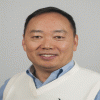Editorial Board
 |
Prof. Yong Li |
|
Biography : Dr. Yong Li completed his medical education MD and Ph.D. training in China. He went to the Imperial College in London for his 1st postdoc fellowship, and then he started his 2nd postdoc associated job in the Children's Hospital of Pittsburgh. He was appointed a research assistant professor in 2002 and promoted to director of the molecular pathology laboratory and a tenure-track Assistant Professor of Orthopedics, Pathology, and Bioengineering of the University of Pittsburgh in 2005. Then he was appointed a laboratory director and Associate Professor of Center Stem Cell for Regenerative Medicine and Pediatric, Orthopedic and Internal Medicine of University of Texas Medical School in 2011. Dr. Li has more than one hundred peer-reviewed publications, and his team is well-funded through DOD and NIH grants. He has more than twenty national and international awards, including the Michael Miller Young Investigator Award from UPMC. He also was a student mentor for National Goldwater scholarship. |
|
| Research Interest : Dr. Li has extensive experience researching the molecular, cellular, and pathological processes within skeletal muscle. Specifically, much of his research has focused on TGF-beta related tissue injury and fibrosis in addition to the genetic and epigenetic regulations that occur during tissue repairing. Dr. Li is an expert on adult muscle stem cells, their plasticities, differentiation and regeneration capacity in cases of injury or disease. In the past several years, his team has developed several novel techniques for molecular, cellular, and small animal-based research that focuses on several major areas of basic scientific study: the mechanism cell migration and adhesions, the homeostasis of adult stem cells during injury or physical exercise, and the formation and prevention of fibrosis in injured and diseased tissues. He and his team also have leaded collaboration on translational studies that involve the use of products isolated from stem cells as well as the engineered platelet-rich plasma (PRP). Using these new genetic and epigenetic tools, Dr. Li and his team have successfully approached several key milestones in the field of stem cell study as it relates to aging, cancer, tissue injury, and tissue regeneration and engineering. |
|
QUICK LINKS
- SUBMIT MANUSCRIPT
- RECOMMEND THE JOURNAL
-
SUBSCRIBE FOR ALERTS
RELATED JOURNALS
- Journal of Biochemistry and Molecular Medicine (ISSN:2641-6948)
- Advances in Nanomedicine and Nanotechnology Research (ISSN: 2688-5476)
- Journal of Veterinary and Marine Sciences (ISSN: 2689-7830)
- Journal of Womens Health and Safety Research (ISSN:2577-1388)
- Journal of Astronomy and Space Research
- Proteomics and Bioinformatics (ISSN:2641-7561)
- Journal of Microbiology and Microbial Infections (ISSN: 2689-7660)

